The audience sat quietly as the film ended, perhaps contemplating the meaning behind the experimental film Coast of Death.
Set in Galicia in northwestern Spain, the film explored the adversarial relationship that a community has with its land, as well as the connections people have to place, history and legend through day-to-day routine. Out of the theatre and through the mezzanine of the newly-opened Thai Film Archive building, the same themes could be said to run through Thailand’s independent cinema today.
Since the pandemic, the cinematic experience has gone from pleasant to potentially threatening. Across the globe, cinemas have been forced to shut down due to the risk of spreading Covid-19 in close quarters.
Thailand is no different. According to a print magazine sitting in the lobby at the Thai Film Archive, with 75 days of state-mandated closures, the pandemic era has led to the longest closing of cinemas in the kingdom since World War II.
Even before the rise of the novel coronavirus, independent cinema in Thailand had faced a reckoning in the face of video streaming services. And for the past 40 years, Thailand’s – and the region’s more widely – once-rich history of stand-alone cinemas across the kingdom had closed one by one with the growing consolidation of the industry under major cineplexes.
That process has accelerated through the past year, helping to shutter some of Bangkok’s few remaining independent theatres. Last July, the art-deco Scala cinema announced its final closure. The Bangkok Screening Room did the same not long after, closing down this month.
“With Covid in the past year, we have to admit that it’s been difficult for independent cinema and film,” said Thida Plitpholkarnpim, the founder of Bioscope film magazine and owner of film distribution company Documentary Club.
“From a business perspective, it’s also difficult because we don’t have a market that is strong enough to say confidently that independent filmmakers, whether they are able to secure funding or pay out of their own pockets, will generate enough profit to continuously stay afloat.”
But travelling from the Thai Film Archive to the Bangkok Screening Room in a recent tour of the capital’s independent cinema and cinema-promoting institutions, Thailand’s community of film aficionados are cooperating to keep the scene alive and provide space for ideas to grow.
Back in 2016, exhibition coordinator Sarinya Manamuti, along with her husband Nicholas Hudson-Ellis and childhood friend Wongsarond Suthikulpanich, opened art-house cinema Bangkok Screening Room in downtown Bangkok.
With Bangkok’s bright lights and food options aplenty, cinema doesn’t always blossom in the megacity. It’s for this reason that the Bangkok Screening Room, with its sleek modern design and velvet blue seating, was a breath of fresh air for film buffs seeking a club-like cinematic experience – that is until its recent shuttering.
“There actually was not space where [Bangkokians] could go and see independent films or small-studio films, an art-house cinema apart from the big shopping mall that only presents big studio, Hollywood blockbusters,” Sarinya said. “That started our journey.”
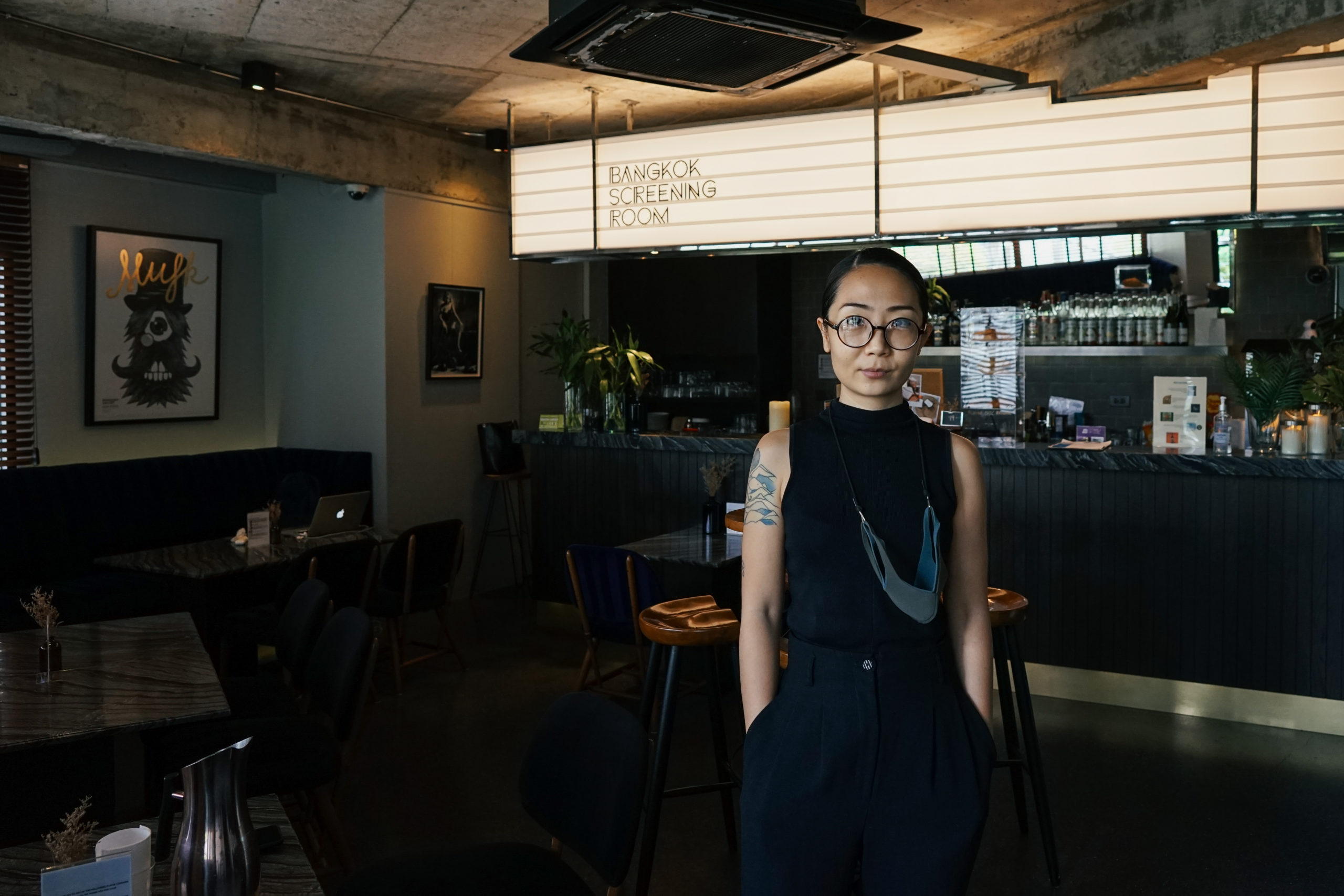
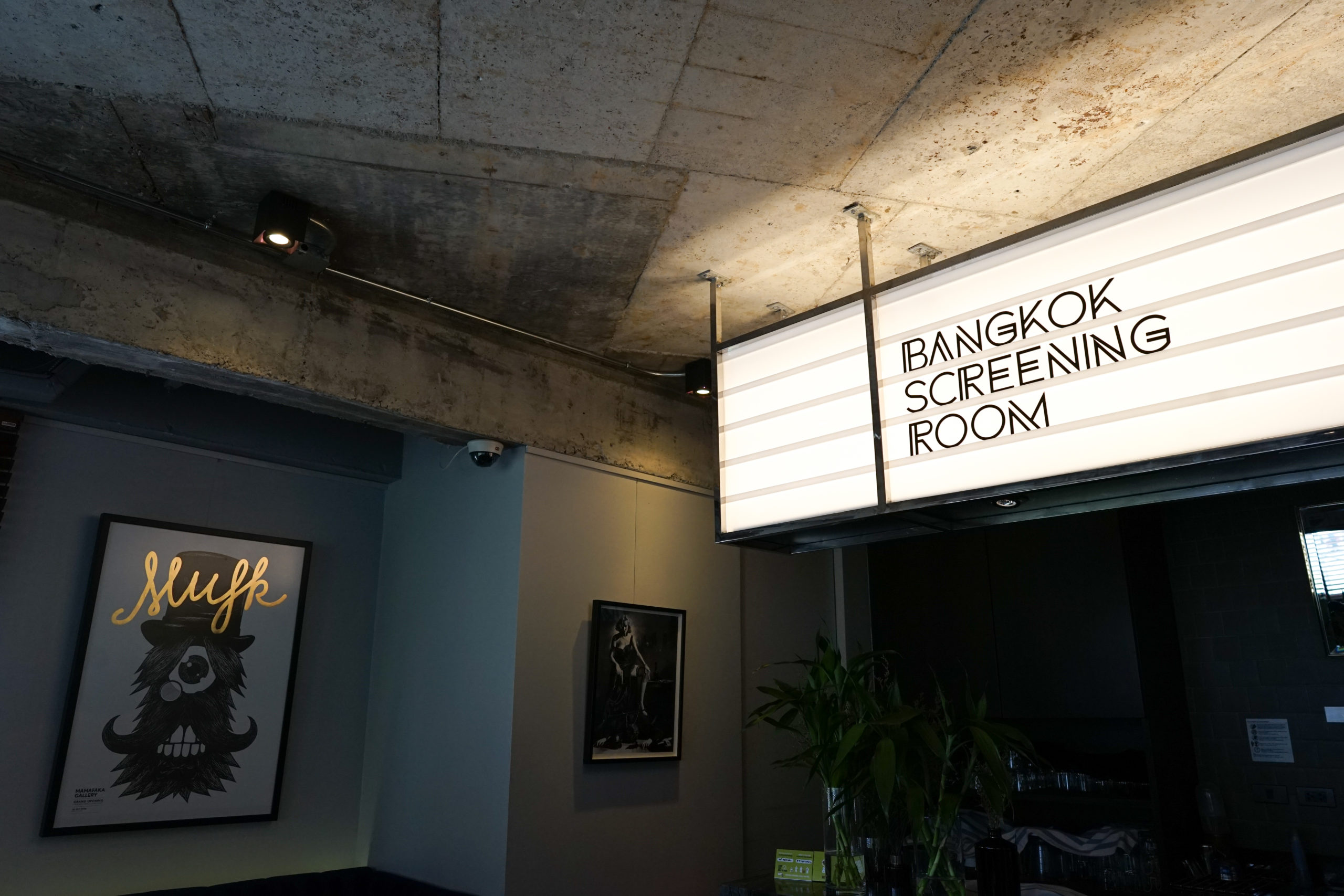
If the closing of Bangkok Screening Room signals anything, it’s that finding diversity in Thai cinema remains a jarring problem, faced by many invested in the industry – from cinephiles to filmmakers and entrepreneurs. The monopoly-like nature of cineplexes like Major and SF in Thailand have narrowed the field for independent and lower-profile international cinema, allowing blockbusters to dominate.
But initiatives like Thida’s Documentary Club are making a small dent in that trend, as it distributes international documentaries to Thai audiences, while also hosting screenings and talks with the hopes of introducing new perspectives and encouraging dialogue through watching cinema.
“We are creating a conversation about societal issues through films,” Thida told the Globe. “With the focus on documentaries, the link between film and social issues is strong.”
While the Bangkok Screening Room closed down this month, all is not lost as the cinema space will be passed on to Documentary Club.
“The Documentary Club has always been interested in having a space to screen the movies,” Thida said. “We think that space for independent cinema is important. Even though we have large cinemas, having a space for independent cinema like a film club is important because it creates a different culture for watching movies.”
Though Thida is carving opportunity from a crisis, it inevitably comes accompanied by the risk of failure as the pandemic continues on and audiences remain low. But being able to brave through the pandemic with relatively low risk is the Thai Film Archive, a government organisation working to conserve Thai films and advocate for cinema in Thailand. In 2009, the archive became a public organisation under the Ministry of Culture. The newest addition, a modern, Scandinavian-inspired building with three cinema theatres, exhibition spaces, and a media library, the Sanbhasatra building, opened at the outskirts of Bangkok at Nakhon Pathom province in January last year.

Chalida Uabumrungjit is the director of the archive. She told the Globe that one of its main goals is to broaden the tastes of viewers and introduce them to films they might not see otherwise. With that in mind, the archive offers free daily screenings to the general public.
“We want to provide the opportunity for people to watch a wide range of films,” Chalida told the Globe.
“We often say that Thai people don’t watch certain types of film – it’s because the experience they have is limited. We only know one type of movie, but if we are able to sample different types of food, then our palette develops.”
Spaces like the Bangkok Screening Room, the Documentary Club and the Thai Film Archive offer more than spaces to view films, but also as a breeding ground for local film talent. Sarinya notes that these spaces are crucial for independent filmmakers that need a space to screen films and recognition in order to gain awards.
“There’s limited opportunities for new-comers or young filmmakers to have a platform for them to promote their film to their own country,” said Sarinya. “So they tend to send their film to festivals around the world and then get recognised, get awards [abroad], and then people want to watch it because they got awarded.”
There are several prominent examples of this, with the kingdom’s film industry often receiving greater recognition outside the country than in. Notably, Apichatpong Weerasethakul’s Uncle Boonmee Who Can Recall His Past Lives won the Palme d’Or prize 2010 Cannes Film Festival. The film was never screened within Thailand before winning the award, a decision by Apichatpong who has faced censorship restrictions imposed during the 2014 coup d’etat. Only after winning the grand prize, it was screened in a few SF cineplexes and Bangkok Screening Room. Or Ten Years Thailand, a movie depicting Thailand’s future, that premiered at Cannes before premiering at the Scala theatre in Bangkok.
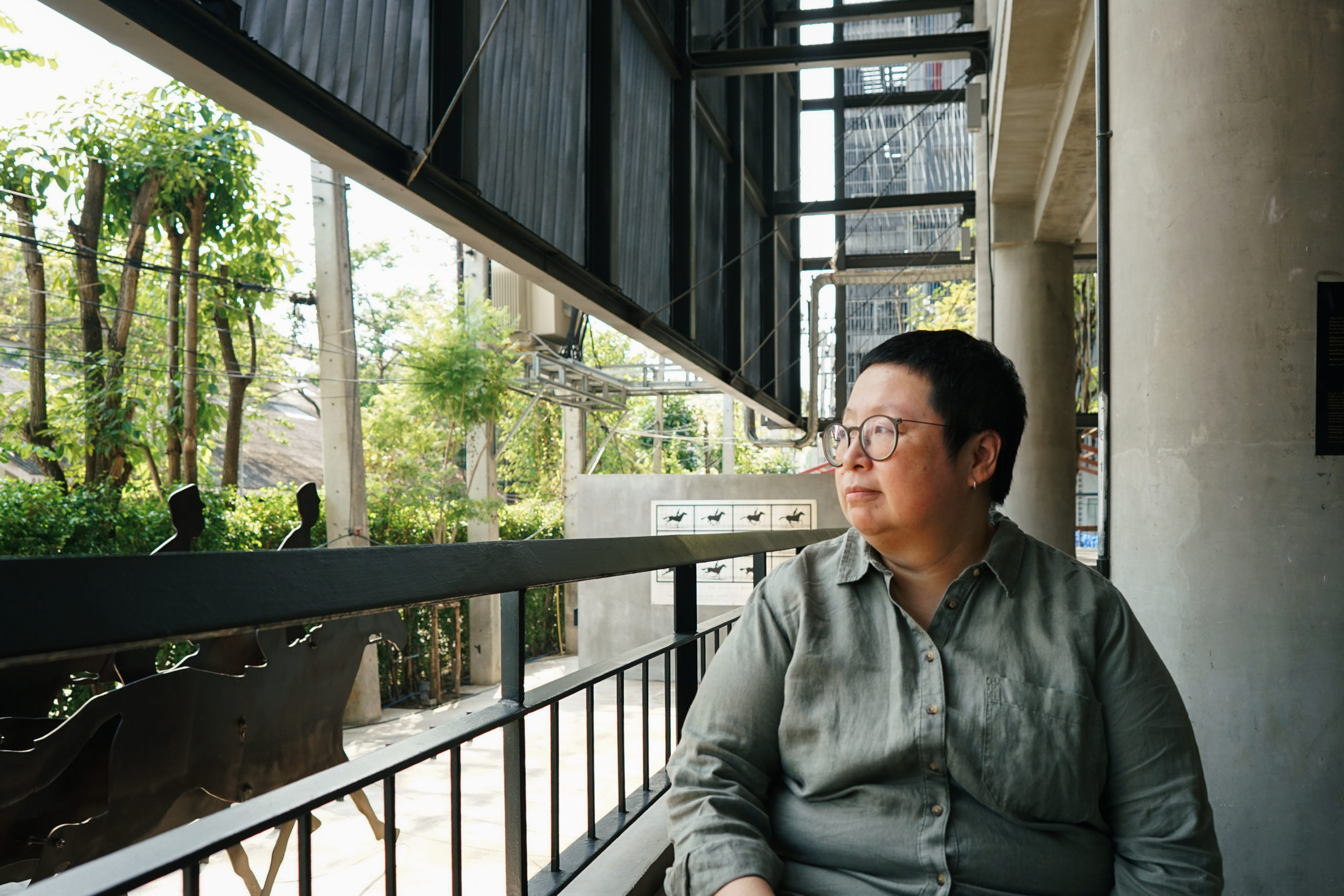
For Pailin Wedel, director of the documentary Hope Frozen, the journey for her first feature documentary was also cloudy when she began. The documentary follows a futurist family’s quest for cryopreservation that contemplates technology and religion, love and faith.
“Every step was just so difficult. There were breakthroughs that I thought could never happen, happening,” Pailin told the Globe. “Failure was next to me, for the past five years. And you sit with that. That’s what’s like for so many [filmmakers]. In Thailand, in Southeast Asia in general.”
With few resources available in the region, Pailin took two years to apply to over 14 different funding opportunities to create Hope Frozen.
“The conversation in Thailand right now is not if women should make more films or ethnic minorities should make more films. The conversation is that everyone should make more films at this point since there’s so few of us to begin with,” said Pailin. “We should support anyone.”
There’s a dichotomy [in Thailand] of horrible human rights abuses and beautiful beaches – and nothing in between
She was called for the final prize of the HotDocs Film Festival in 2019 for the Best International Feature Documentary award, automatically qualifying for an Academy Award nomination. The documentary was picked up for distribution by Netflix and released last year.
From a journalist to a filmmaker, Pailin hopes that the documentary connects, rather than divides, stressing the main themes are a thread that connects viewers globally.
“I hope to connect with people around the world and present a story that people really haven’t seen before from Thailand,” said Pailin.
“There’s a dichotomy [in Thailand] of horrible human rights abuses and beautiful beaches – and nothing in between. I really felt that the story about family, love, and grief, really thinking about what it is about life and death, all these big questions that humans think about. That’s a uniting force. And it’s a story that connects rather than divides.”
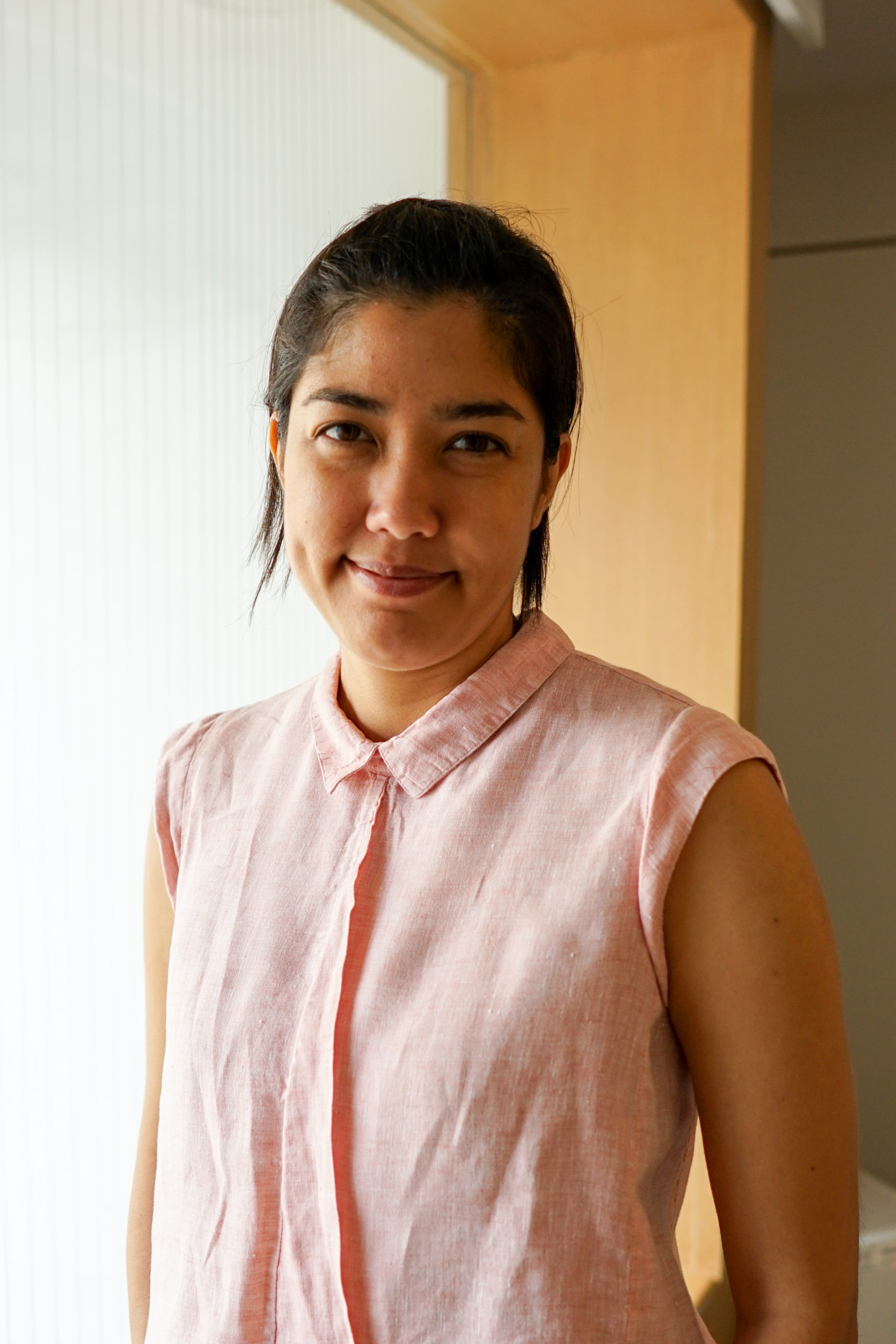
Perhaps counterintuitively, Netflix has also changed the game for the better for independent filmmakers, emboldening the local film industry with an injection of funding, while opening up the market for viewers and filmmakers.
“We were really surprised because we were in that same time period where, you know, the streams became more popular. And it’s even more available during the pandemic,” said Sarinya.
“It actually helped raise awareness among people. It goes back to the vision of the executive – a big film company like Netflix also had the vision to support small-studio films. This allowed people to see more small-scale films and people want to see that on the big screen, even though it is available on Netflix.”
For Pailin, the streaming giant has empowered filmmakers through an injection of resources, offering great potential for filmmakers that have traditionally faced obstacles in this realm.
“For the first time we had, like, an international multinational company, really interested in making Thai stories for Thai people and I think that opens up so many doors,” said Pailin. “Also, it’s not just like with workshops, where you’re developing a handful of people. But when you’re actually commissioning the entire film, you are developing the entire industry.”
Still, a healthy cinema scene is an important base to grow emerging talent. Documentary Club’s Thida believes that the way to go is for the independent cinema scene to stay close through a union-like organisation.
“We have to, whether that be to call for the government sector to push this as a cultural product to drive it or to attract investment by making the film industry look prosperous into the future – it all starts with being united.”
Throughout the years, government support for the industry has been minimal and fluctuating under changing administrations. Staying together, for Thida, can help to increase the industry’s collective influence. Staying afloat amidst the pandemic in particular has been difficult, with government support a rare privilege.
“We don’t have funding to support individuals that run independent cinemas or independent film studios that have been impacted [by the pandemic],” said Thida.
In this spirit of collaboration, before its closure the Bangkok Screening Room worked with both the Documentary Club and the Thai Film Archive to screen curated films.
“We had a good relationship [with Documentary Club] from the start because we got some of their films showing here as well,” said Sarinya. “So we are always in dialogue about what we can do to try to help this independent cinema survive and the independent film industry survive.”
“At the end of the day, it’s all about working together. Putting all the barriers away and to see what we are trying to create in the big picture.”
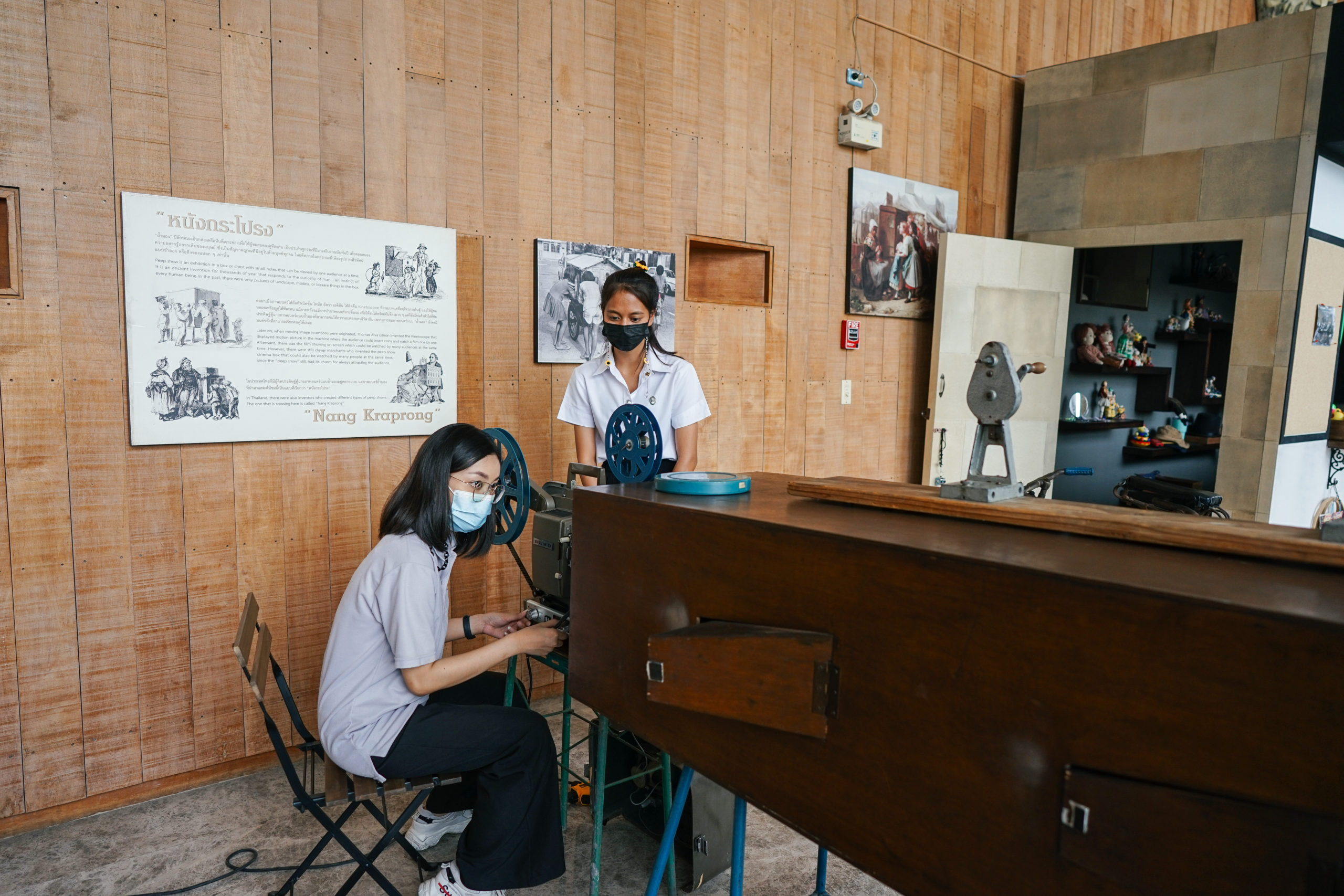
Chalida acknowledges the privilege of the Thai Film Archive in being able to act as a point of stability for Thailand’s film industry, and hopes that the organisation can serve as a rock through ups and downs. One of the benefits of being government-funded is that the Thai Film Archive is able to carry out conservation activities, the costs of which may otherwise be too high and not feasible on a for-profit basis.
“Normally, we try to be an organisation that supplements others,” said Chalida. “There is no need to compete. Instead, to complement one another.”
The industry right now can’t afford to be picking who to support, Pailin says, but rather to lift everyone up as much as possible.
“How you get diversity and stories, in general, is just to make more films,” said Pailin. “The more films people can make, the more diverse the stories are. That always has to be a combination of those big blockbusters films, that are Thai horror comedies, and independent cinema.”


